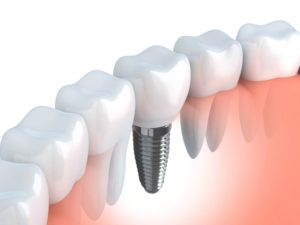 You may have heard a lot of good things about dental implants in Millersville, and rightly so. This tooth replacement option allows you to regain a strong, natural-looking smile that can last for the rest of your life. Still, you might have heard horror stories about dental implant failure, causing you to hold back from looking into this treatment for yourself. As you’re about to find out, however, such unfortunate incidents are very few and far between.
You may have heard a lot of good things about dental implants in Millersville, and rightly so. This tooth replacement option allows you to regain a strong, natural-looking smile that can last for the rest of your life. Still, you might have heard horror stories about dental implant failure, causing you to hold back from looking into this treatment for yourself. As you’re about to find out, however, such unfortunate incidents are very few and far between.
Success Rate of Dental Implants
As you research dental implants, you’ll find varying studies that set out to determine the success rate of this treatment. Because of the way different researchers designed their studies and defined the terms within their research, you may discover statistics that rate the survival rate of dental implants at anywhere from 92 to 98 percent.
In some studies, implant survival is separated from implant success, with “success” referring to cases where the implants thrived from the very beginning. They didn’t need any special professional attention after their placement in order to perform their job well. “Survival” may define cases where a dentist had to step in and take steps to save the implants.
Understandably, cases of implant survival are more common than cases of implant success, but the bottom line remains the same: In the vast majority of cases, implants provide a long-lasting, sturdy solution to missing teeth.
Factors that Determine Implant Success
There are a number of factors that go into determining how well implants do within a person’s body. If you are thinking about undergoing this treatment, there are a few steps you can take to ensure that your procedure has the best chance of success possible:
- Choose a qualified dentist in Millersville to perform your procedure. Try to find someone who has experience with cases that are similar to yours and who has undergone extensive training in how to place dental implants.
- Avoid tobacco. If you smoke cigarettes or use other tobacco products, you may heal slower after surgery and increase your risk of developing an infection that could endanger your implants.
- Care for your mouth well. Both immediately after you receive implants and well into the future, it is important that you follow your dentist’s instructions for keeping your mouth clean and minimizing the risk of damage to your replacement teeth.
- Know your body. While problems with implants are rare, they do sometimes occur. Be aware of any changes in your mouth (implants that feel loose, swollen gums, etc.) that might indicate that something is wrong. If you get to your dentist for prompt treatment, you may be able to prevent the issue from becoming worse.
Are you ready to replace your missing teeth? It’s extremely likely that if you choose dental implants, you have a lifetime of healthy smiles to look forward to!
About the Dentist
Dr. Devon Conklin received her Doctor of Dental Surgery degree in 2009. Immediately thereafter, she continued her education and completed a residency that helped her understand the finer points of implant placement and restorative dentistry. If you would like to speak to her about dental implants, please contact our office at 410-729-9090.

